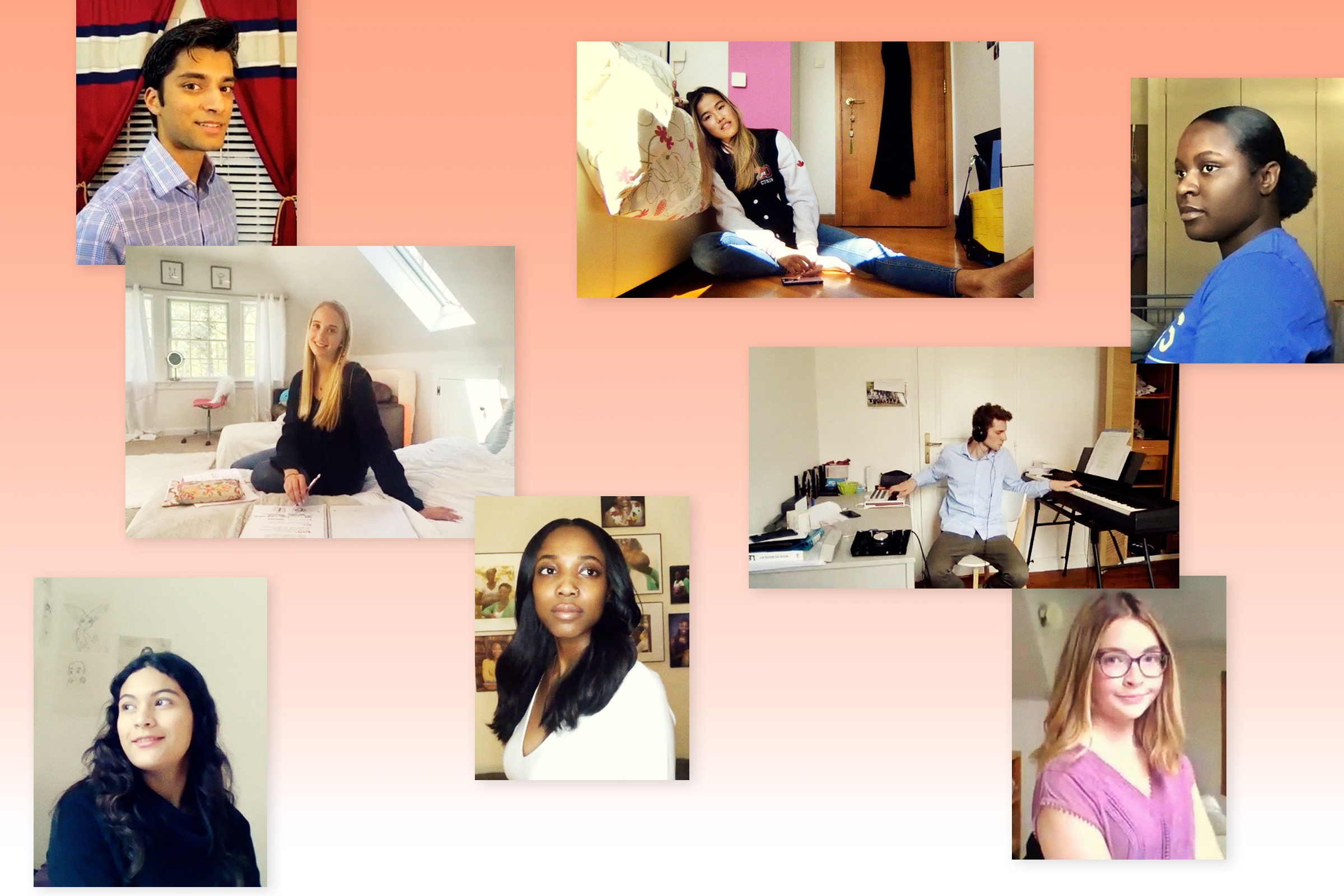Gen Xers graduated as 9/11 changed the world forever. Millennials graduated into a job market decimated by the Great Recession. Now, in 2020, Gen Z could very well be renamed Generation Pandemic. The young adults graduating from high school this year will be defined by their Zoom educations and viral TikToks, but also by their lost summer jobs and unpredictable futures. Fourteen high school seniors from around the world told TIME what it’s like to enter a society that’s being completely reshaped.
Lorraie Forbes, 17
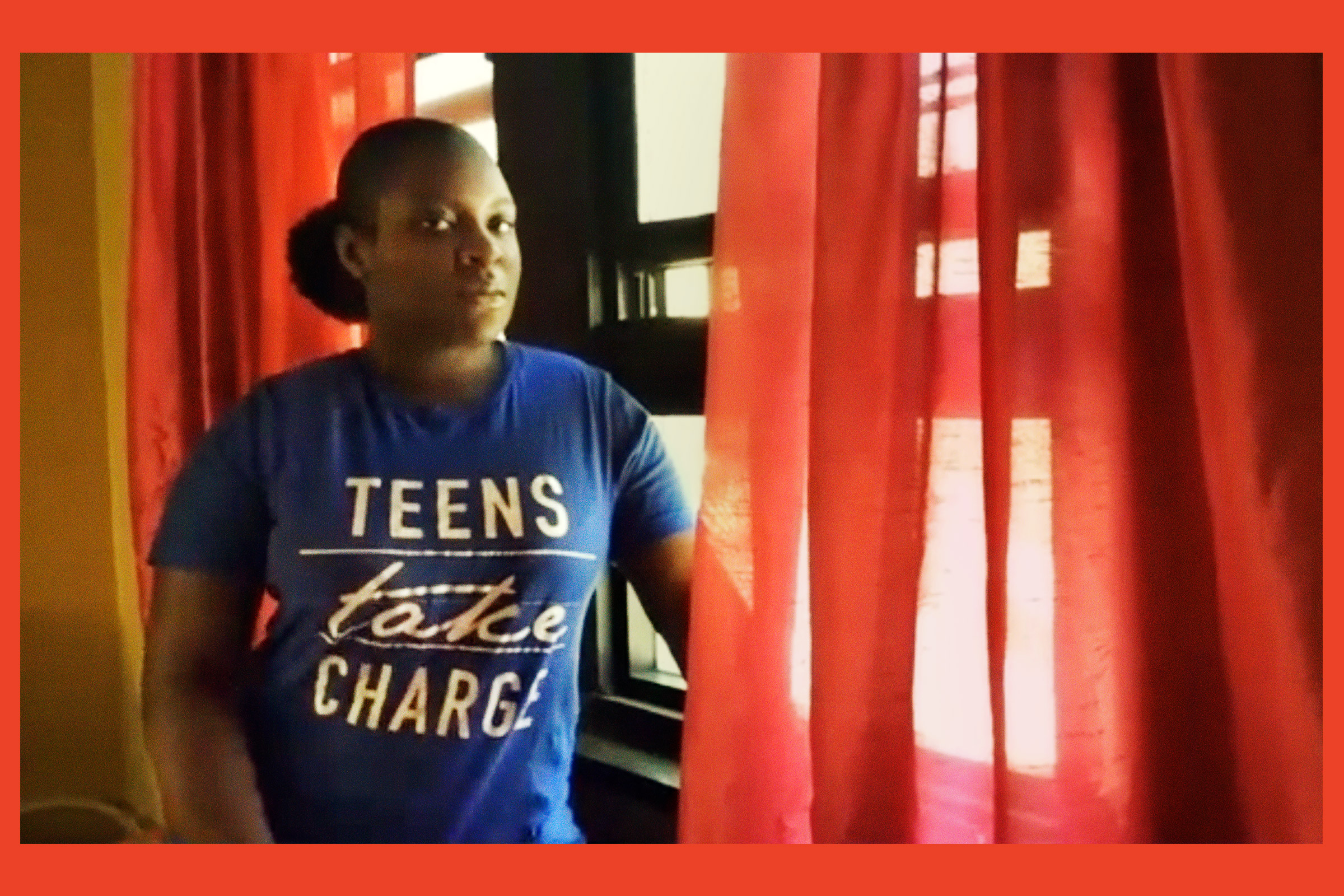
Lorraie lives in Brooklyn and recently joined the U.S. Navy.
I am supposed to report for boot camp in September. I’m trying to prepare myself physically and mentally, but it’s hard because the gyms are closed. I’m upset about pools being closed too, because part of the Navy physical–screening test is swimming. I’m a terrible swimmer. This was the time I needed to practice. I’ve been working out three to six hours a day at home. I have a barbell, dumbbell and a pull-up bar and am using random household items: chairs for dips and my scale to measure out 10 lb. of books or bags of sugar.
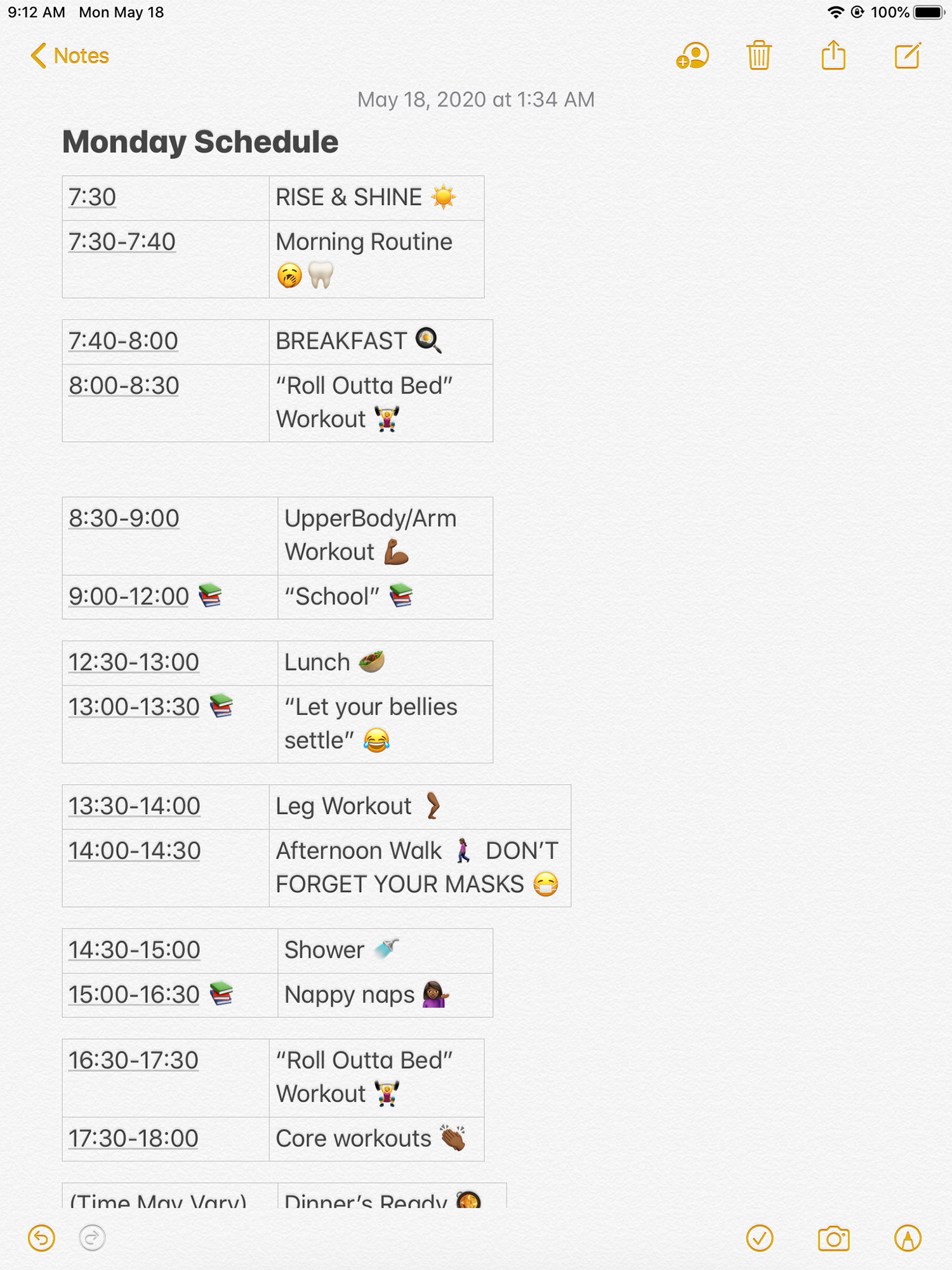
I pray all the time. Meditating on the Word I get on Sunday helps me keep myself sane. It also helps to keep myself occupied, so I’ve been making myself and my sister a detailed schedule every day. Online school has been a challenge, especially because I can’t look at a computer for long without my vision getting blurry and getting headaches. And my school isn’t teaching right now—they just hand you work, give you a due date, and that’s it.
I’m also involved in social- and political-justice activism. All the accounts of recent police brutality have made me rethink my career after I leave the Navy. We’ve been seeing how the system wasn’t made for people of our kind. All of these incidents, especially in my area in Brownsville, have made me want to pursue a career in law enforcement: to change the system from within. —As told to Andrew R. Chow
Louis Maes, 17
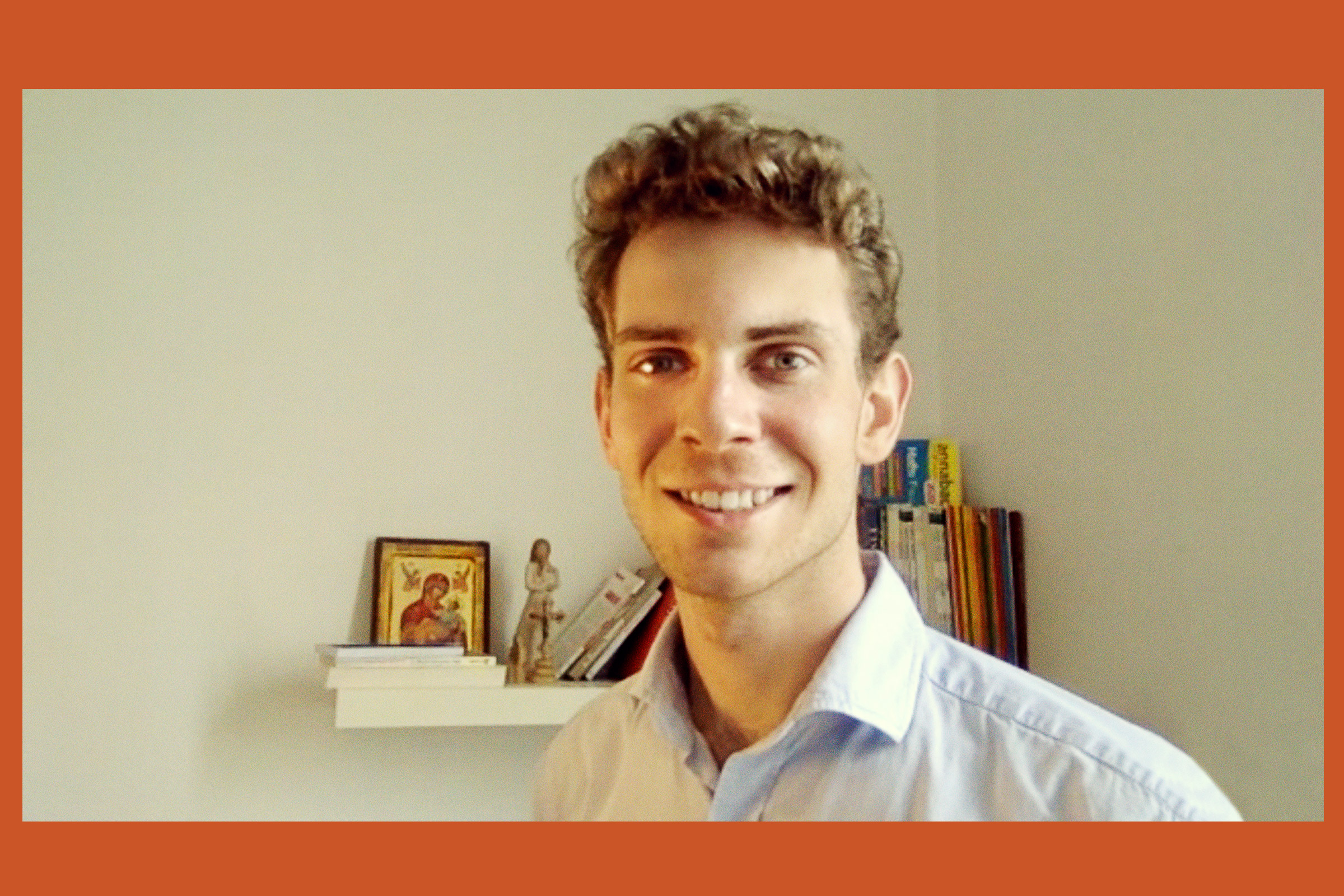
Louis lives in Bordeaux, France, and hopes to pursue a law degree but has not committed to a university.
Before the lockdown, I was living a nonstop life. Between preparing for my final exams and attending competitive handball competitions, I never stopped. But when I found myself stuck at home with my two younger siblings and parents with an unlimited amount of free time, I turned toward the thing I love most: making music.
Since lockdown began, I have written more than 20 songs—polyphonic electronic music with lyrics. When you find yourself in a bubble, alone, it forces you to reflect. I write music about my life, which lets me reflect on who I want to be when lockdown ends and my adult life begins. My songs are about love, solitude and growing up. It’s also given me the chance to appreciate the life I’ve had so far. Spending so much time with my family during my last year living at home has brought us closer.
Before lockdown, my dream was to work in the music industry. But these past few weeks have shown me that music can be a huge part of my life without being my career. It will always be there.
In some ways, this has shown me that all difficult periods can be nourishing. Of course, there have been hard days. I love solitude but not for this long. But the bad days have helped me create some very sincere music.
Over the past few months, I’ve realized that life will always be unstable. If you look at history, there have always been crises—moments of uncertainty and unrest. I think it’s about learning how to live within them. —As told to Mélissa Godin
Kamryn Sneed, 18
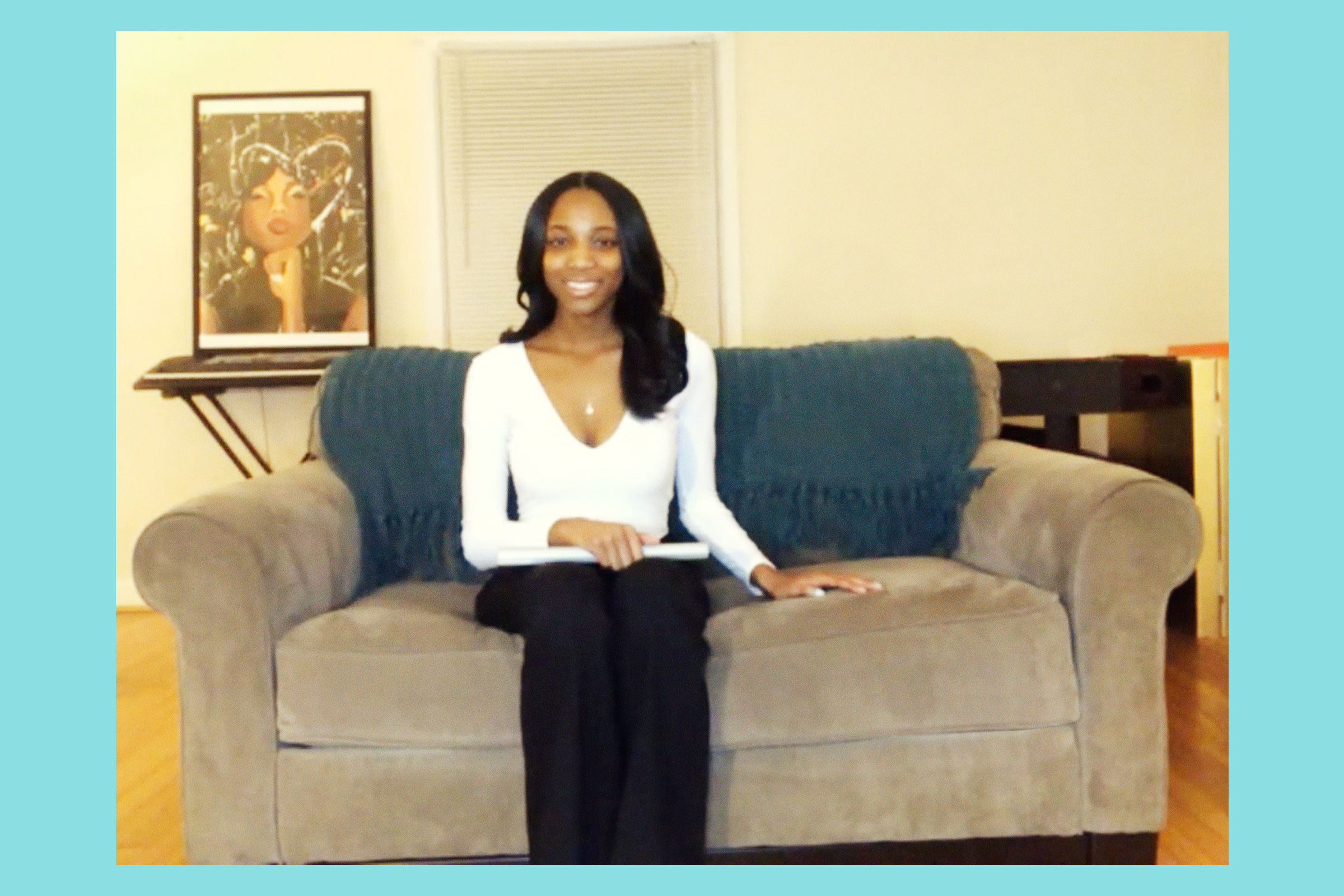
Kamryn lives in Durham, N.C., and received a scholarship to attend North Carolina Central University in the fall.
I cried the whole first month. I was just watching my senior year go by, and it really hurt. I’ve seen each class have a prom, I’ve seen each class graduate. We’re having a drive-in graduation ceremony at Southpoint [Mall].
All the families have to stay in their cars as the graduates walk across the stage, 6 ft. apart. I like that they’re doing this, but it’s still not the same. We didn’t get our senior pictures taken, so my mom’s sorority sister bought me a photo shoot [at home]. I was having so much fun. My family bought me a prom dress, and I’m going to have a miniprom in my yard.
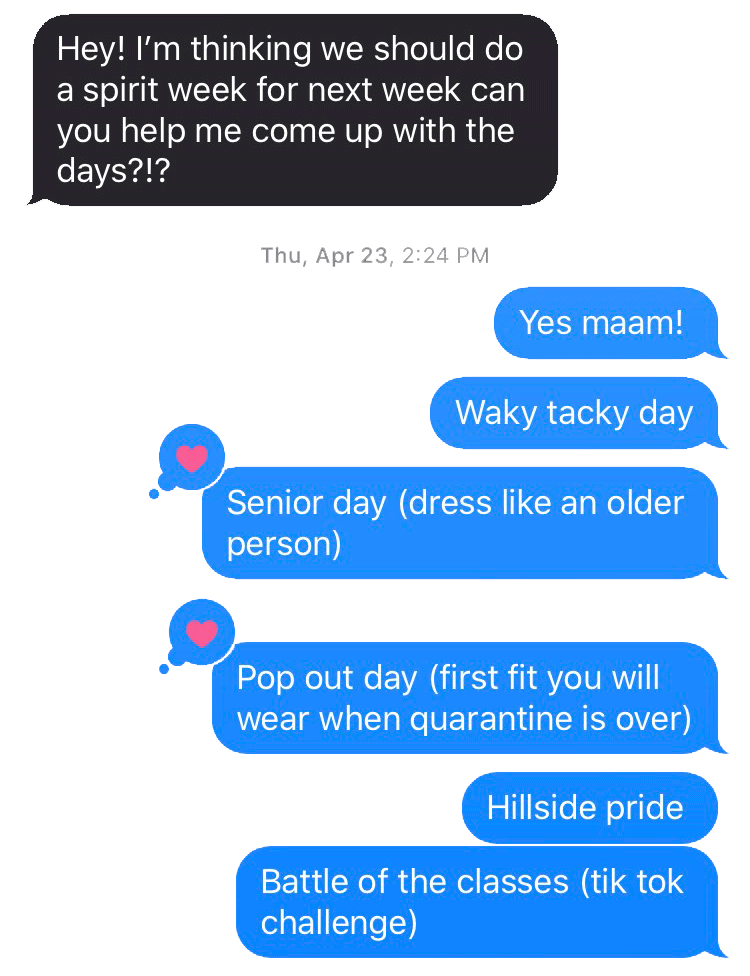
Colleges are saying they’re going to close campus. People always say those are the best four years of their life, and I want those to be my best four years. I don’t want college if I don’t get the full experience. Walking on campus, meeting new people, going to the caf, making beats on the table. I want that. I don’t want just schoolwork. So far we had a virtual open house—that was actually fun.
I want to be an oral surgeon and a dentist. I still want to be a doctor. It’s been my dream since second grade. I feel like we’ll grasp the virus before I graduate college, but the future is a huge fear. We can’t live life like we did before. It’s made me think of the road differently. Right now we’re just floating. —As told to Jamie Ducharme
María Victoria Cárdenas Guerra, 18
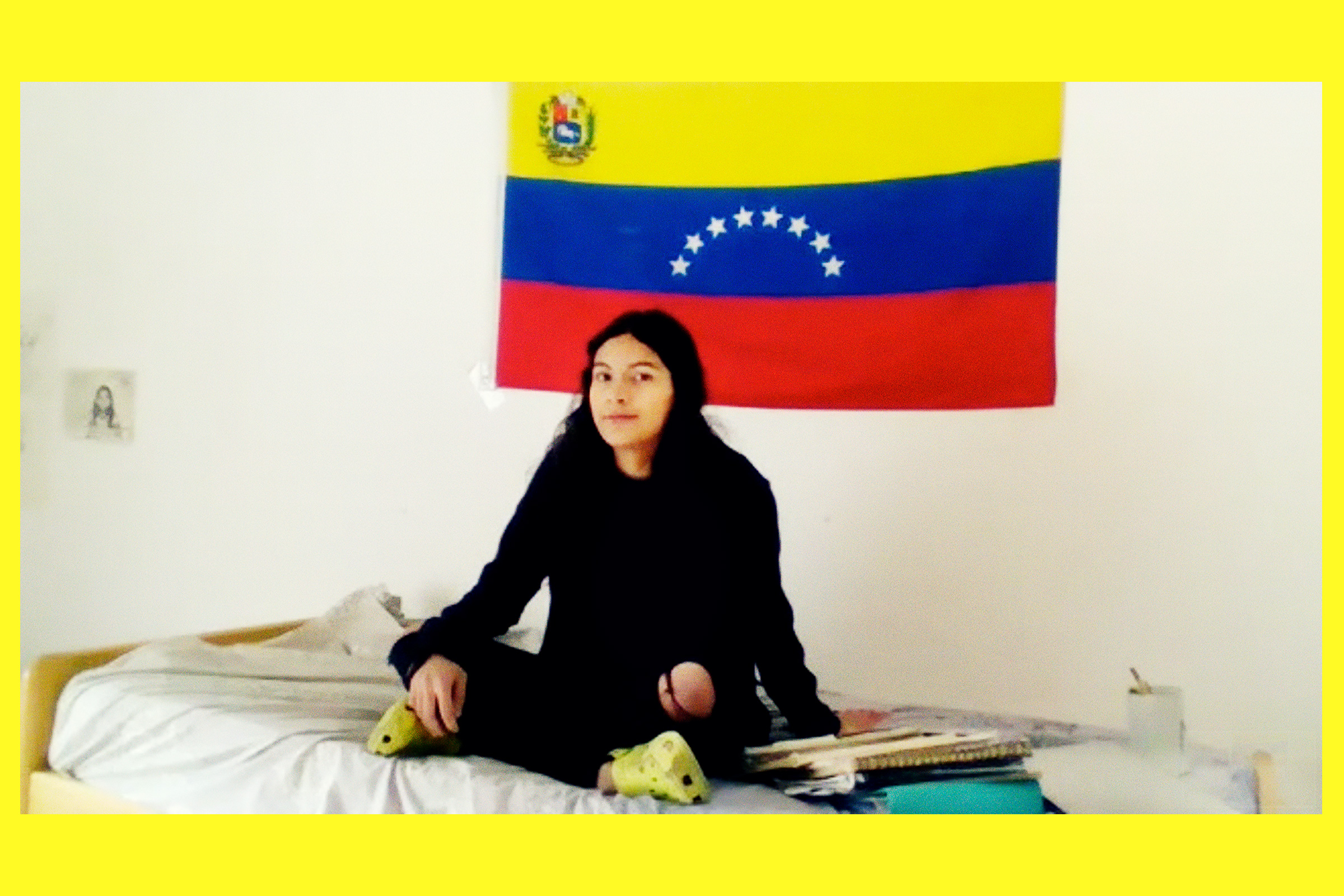
María Victoria lives in Buenos Aires and plans to attend the University of Buenos Aires.
I thought I had lived through every kind of crisis. I’m Venezuelan, and the political and migratory crisis brought me to Colombia and then Argentina. I grew up acutely aware of how fragile our society and economy were. But I never worried about health.
Since the pandemic started, my worldview has completely changed. I grew up in countries where the government was not doing what they were supposed to do, but I always thought that Europe and North America had it figured out—I saw them as these utopias. But when I watched the news and saw how badly some authorities there were handling the crisis, it made me angry. This pandemic has made me want to study political science and economics so that I can positively influence people’s lives.
In many ways, this has forced me to become an adult. My parents were visiting family in Venezuela when the lockdown was announced and have not been able to re-enter the country. I’m living on my own, taking classes throughout the day and caring for the household in the evening. My parents send me money for food and things like that. In my spare time, I’ve been working on an auto-biography, and a series of short stories about feminism in Argentina. I’ve always loved writing, and lockdown has been an opportunity to focus on projects I’ve been dreaming about since I was 13 years old.
Of course, there are days when I feel sad. I watched the graduating class celebrate together last year and was so looking forward to experiencing that myself. But when I look at how many people are suffering, it makes me really grateful that I can stay home, eat and finish my education.
I don’t know if this pandemic will make us—our generation—paranoid. But I think it will make us really involved in everything from health to economic to political issues. I don’t think it is a negative thing to grow up like this. After all, this pandemic shows us how far we can go when we do what is best for everyone. —As told to Mélissa Godin
Lauren Ulrich, 17
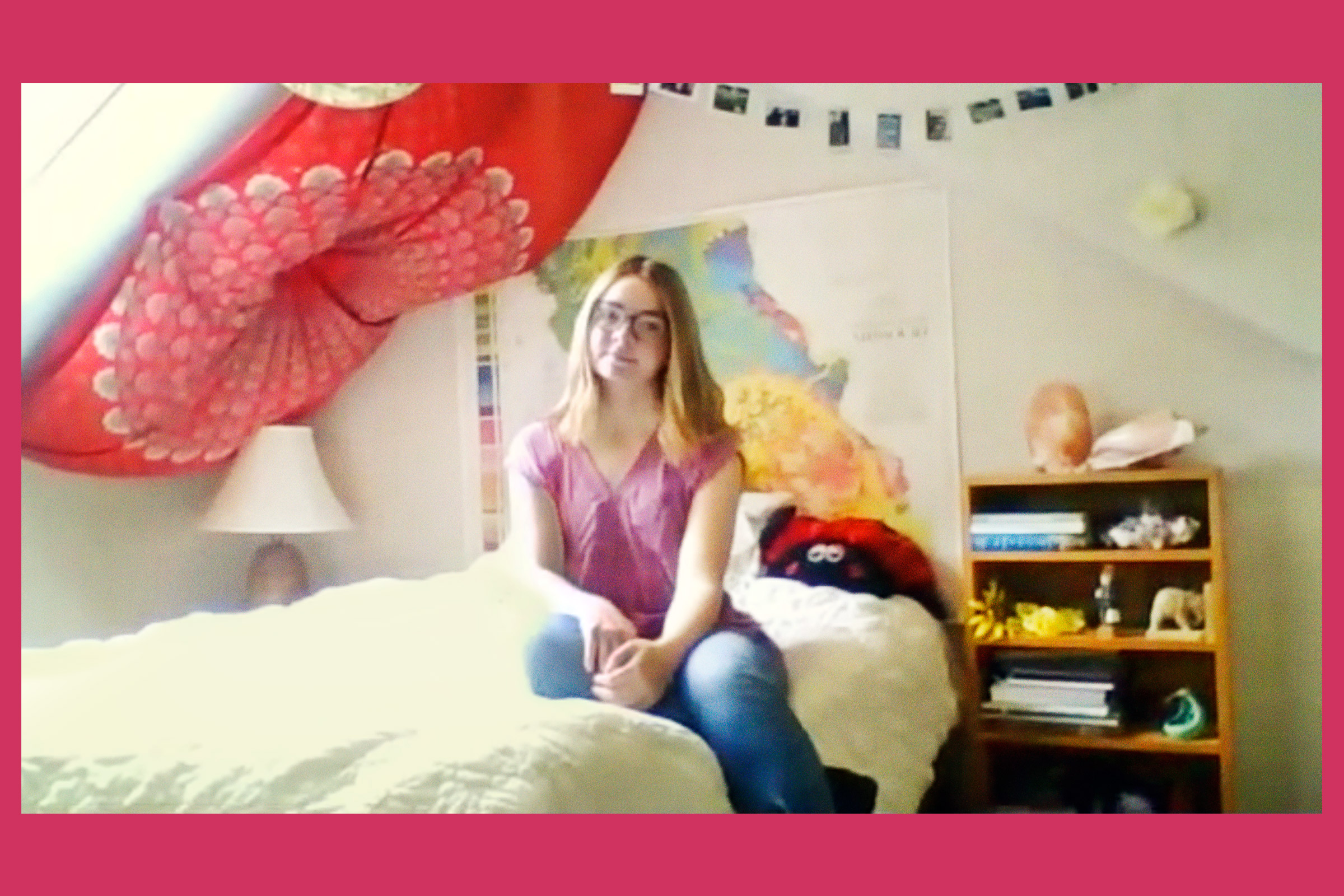
Lauren lives in Rolla, Mo., and plans to attend Indiana University Bloomington
My main passion in life is the environment. It’s what I’ve been working so hard for: to have an impactful career and work to protect it. But while I was spending all my time in classes, journalism, internships and advocacy groups, I kind of lost touch with why I cared about the environment. With this free time, I’ve been able to spend more time in nature.
I live pretty close to part of the Mark Twain National Forest. I’ve been hiking a lot—I even went swimming in a river near my house, even though it’s pretty cold here still. When I was little, I would just go swimming somewhere for the fun of it. But I haven’t done that in a long time. When I jumped back in, that was a special moment for me: to let go of how serious I’ve been these last few years. I’ve been almost like my old self again.
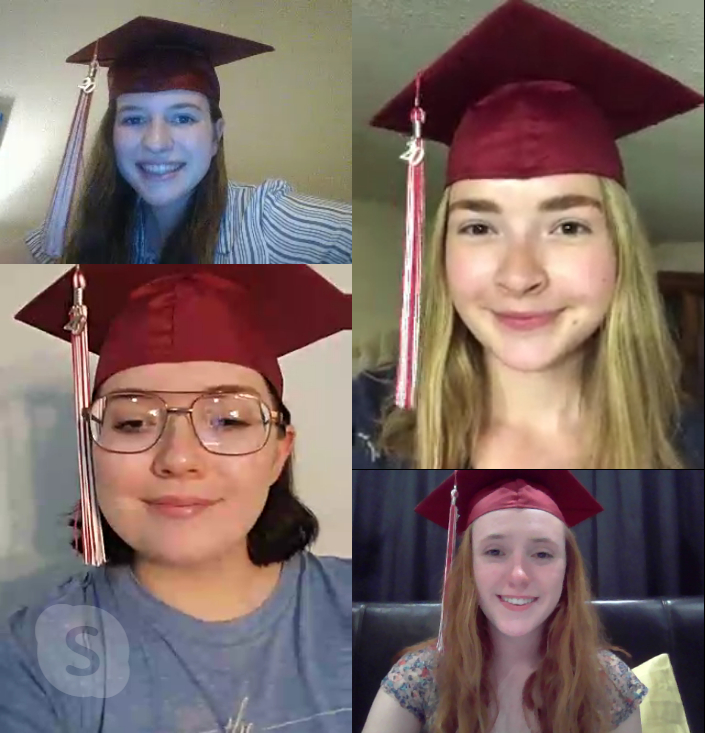
I’ve almost been intentionally trying to take a break from worrying about issues that aren’t in my immediate control. Climate change is something I am incredibly passionate about, and I believe we need to be doing everything we can do to prevent it. But I’m learning through this experience that I can’t do everything. I need to make sure I’m as healthy as possible, so that I can make a bigger impact in the future. Knowing our economy is so unstable right now definitely makes me nervous, because I didn’t have a stable career path in the first place, and I especially don’t now. But I’m still going to do it: I know it’s what I’m meant to do. —As told to Andrew R. Chow
Kiana Aaron, 17
Kiana lives in Chicago, Ill., and plans to attend the University of Vermont in the fall.
I go to Chicago Bulls Prep; it’s a public charter school, a really good school, and I’m not just saying that. I went to a bad middle school; we didn’t really learn anything. Usually, I would get to school around 6:45 a.m. Sometimes I would work out, but most of the time I’d go to office hours, usually for chemistry. I had my AP Chem test yesterday and it went OK. But it’s weird; I don’t know how I feel about the AP testing this year, I don’t know if it’s fair. I did the best I could. After school, I would stay for more office hours or go to Wicker Park and stay there as long as possible, because it’s really hard to do homework at my house. I don’t have the best home life, so being at school is always more comfortable. Not being there feels weird. I miss my friends and especially my teachers.
Time feels so warped now; the days don’t feel separate. I wake up, eat breakfast, try to do some work. I’m just stuck with my mom and my brother’s dad and my little brother. I love him, and I love helping with him, but he’s always loud. It’s more the aura in my house; as soon as I walk in, it’s like, “Ugh!” My mom went back to work two weeks ago, and now I just wait for her to come home everyday. She provides everything for me and my siblings, but I have to do everything at home during the day, basically, now that she’s working. I help my brother with his classes, too. I have my phone, but I’m waiting to get a laptop from my school, because Bull has been sending laptops to kids.
My friend and I started an Instagram account sharing our class’s college plans. A lot of kids have messaged saying they’re really appreciative. The expectations are really high for us, so that’s what makes not having a graduation and not having a prom the sad part. Our school is so strict, that is the one time to have fun, and now we’re not having it. I had already gotten a dress — thank God it was not super expensive. It’s red, and on the top it’s a corset, and sparkly. I miss getting dressed up, but I have been doing my makeup; it’s really calming.
I applied for a summer enrichment program with the University of Vermont, but that might just be online now. I’ve been trying to get a job, but it’s really hard. I’m frustrated. My birthday is May 27, and I guess I’ll dress up, do my makeup really nice, have a photo shoot by myself. I want to make some cookies I’ve seen on TikTok. That’s pretty much it. —As told to Raisa Bruner
Zoey Meyer, 18
Zoey lives in Cape Town, South Africa, and hopes to attend university but has not yet committed to one.
Since I was a little girl, I’ve wanted to be a lawyer. I’ve always liked the idea of giving people justice. But seeing how some police officers have treated black and white people differently under lockdown has made me want to be a lawyer even more. It is not fair that two groups of people are treated so differently.
Lockdown has been hard for me and my family. Before all of this, I worked at a restaurant. I loved my job. And I needed to work because my parents can’t afford to give us extra things. We have food and a roof over our heads, but we pay for extra things like going out with our friends, clothes, toiletries. It not only gave me the money I needed but it helped me come out of my shell. I was shy, but that job forced me out of my comfort zone. Now, my boss says she won’t be able to give me another shift until they can recuperate their losses. My dad also lost his job. My brother and I have run out of toiletries. We don’t have a lot to begin with so this is really affecting us.
The thing I miss most is going to school. I miss having a purpose. Online school is not the same. Not everyone has wifi or data—mine cuts out a lot—so online classes are really difficult for some of us. There are also so many moments we will miss: our matriculation ball, walking around in our grad jackets and feeling proud.
But I know that all these challenges will make me a stronger, harder working and independent person. Before the pandemic, I already faced adversity. I don’t live in a very safe area. It terrifies me to think that there is crime right out my window. And now, this lockdown has made life more difficult. But I’ve learnt that we can put a stop to the whole world and that we will still be OK. —As told to Mélissa Godin
Addison Bilodeau, 17
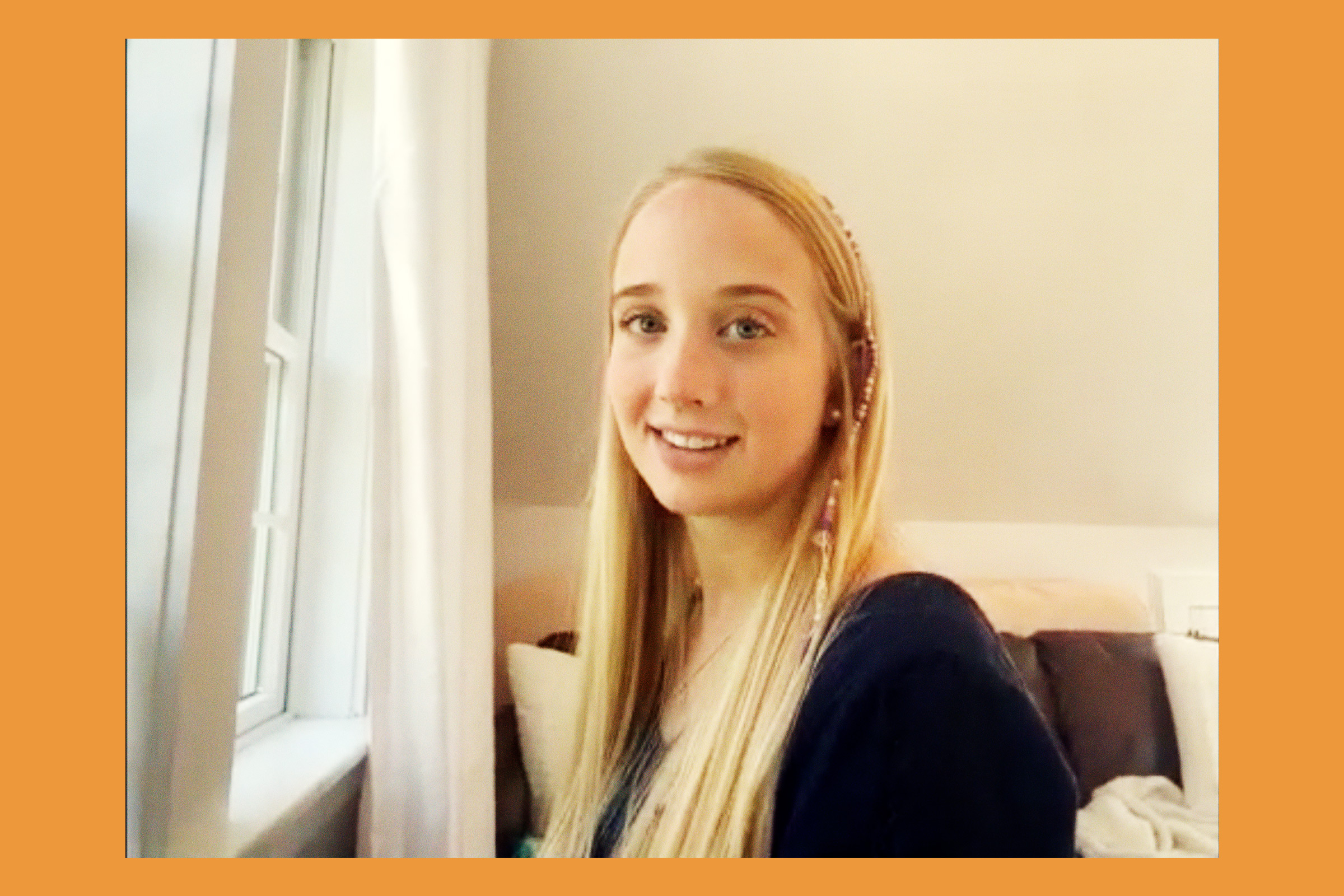
Addison lives in Greenland, N.H. She plans to attend Coastal Carolina University.
To pay for college, I need to work. I usually work at a restaurant across the water in Maine, and throughout the school year I was like, “Oh, I’ll just work in the summer and put in more hours.” But now that the restaurant is closed I don’t know if that’s a possibility anymore, which is kind of nerve-racking. It definitely could impact going to college for me. I already put my deposit down, and my parents are helping me a lot. But there’s housing, books, meal plans. Hopefully the restaurant will reopen or I’ll find somewhere else to work. I will probably also have to take out more in student loans. My mom works for Marriott Hotels, and she’s on furlough. She’s very stressed but also embracing it: she’s started so many projects around the house. Our whole house is painted a different color now.
I’ve also been getting back into crafts. Yesterday the superintendent allowed us to come into school for a socially distant pottery class, where we were allowed to glaze our finished pieces and take them home. Today I’m taking old clothes and sewing and tie-dyeing them. I started gardening, and we just got chicks to raise as chickens. And I also started taking part in a pen-pal program through school with seniors at a nursing home, who aren’t allowed to see anyone or have anyone come in.
These projects are definitely a good distraction because when I turn on my phone, it’s just all news about the outbreak and it’s overwhelming. In some ways it does allow me to get off my phone more. Before, I would come home from school, get on my phone, watch TV, do homework. Now I get off Zoom and just want to go outside. Being able to do something that takes my mind off of it and makes me feel normal is really helpful. —As told to Andrew R. Chow
Buey Grossman, 17
Buey lives in Ketchum, Idaho, and is an aspiring ski racer. His home county had one of the highest COVID-19 case rates in the U.S. by early April.
I’m an alpine ski racer, and I compete in four different events: slalom, giant slalom, Super G and downhill. This was my second year as a FIS athlete, which means competing with everyone 17 and up. We were actually at a race here, one of the last qualifiers, when we found out about coronavirus. At that race, I figured out I had qualified for U.S. nationals, but then the next day, I also found out that U.S. nationals were canceled. I’d like to ski at least D1 in college, so my plan was to take a gap year with the Team Clif Racing Academy, and go down to New Zealand in the summer. We’re hopefully still trying to do that, but I’m not sure what’s going to happen because of the circumstances.
I didn’t really think anyone I knew was going to get it when the virus first came here, but a lot of my friends got it, and a lot of our parents’ friends got it, and I know a few people who have died from it. I wasn’t expecting that. When we first started quarantining, my parents were really strict, not letting me leave the house whatsoever. I use my phone, but I’m not the most social person online, so that was tough. It got a little better when I was allowed to go backcountry skiing or hiking or just started taking my dog for a walk. Prom was canceled, and our senior quest [outdoors trip], and graduation. The school decided we’ll be doing a drive-by diploma pickup.
For spring term of senior year at my school, you can either take classes like normal or do a senior project. I chose to try kayaking blindfolded, and to run a Class 5 rapid with my blindfold on. I’ve always been a kayaker, so I started paddling local runs with a visual impairment and getting down the guiding technique. I decided to test it this month, right at the confluence of the Payette River where the South Fork and North Fork meet. The biggest takeaway was understanding the difference between perceived danger and actual danger, and being able to cope with the fear you’re feeling, but not let that control you or take over. You have to focus on the actual dangers that are there, and be prepared. But it’s good to adapt and make the best of it. —As told to Raisa Bruner
Megan Lee, 17
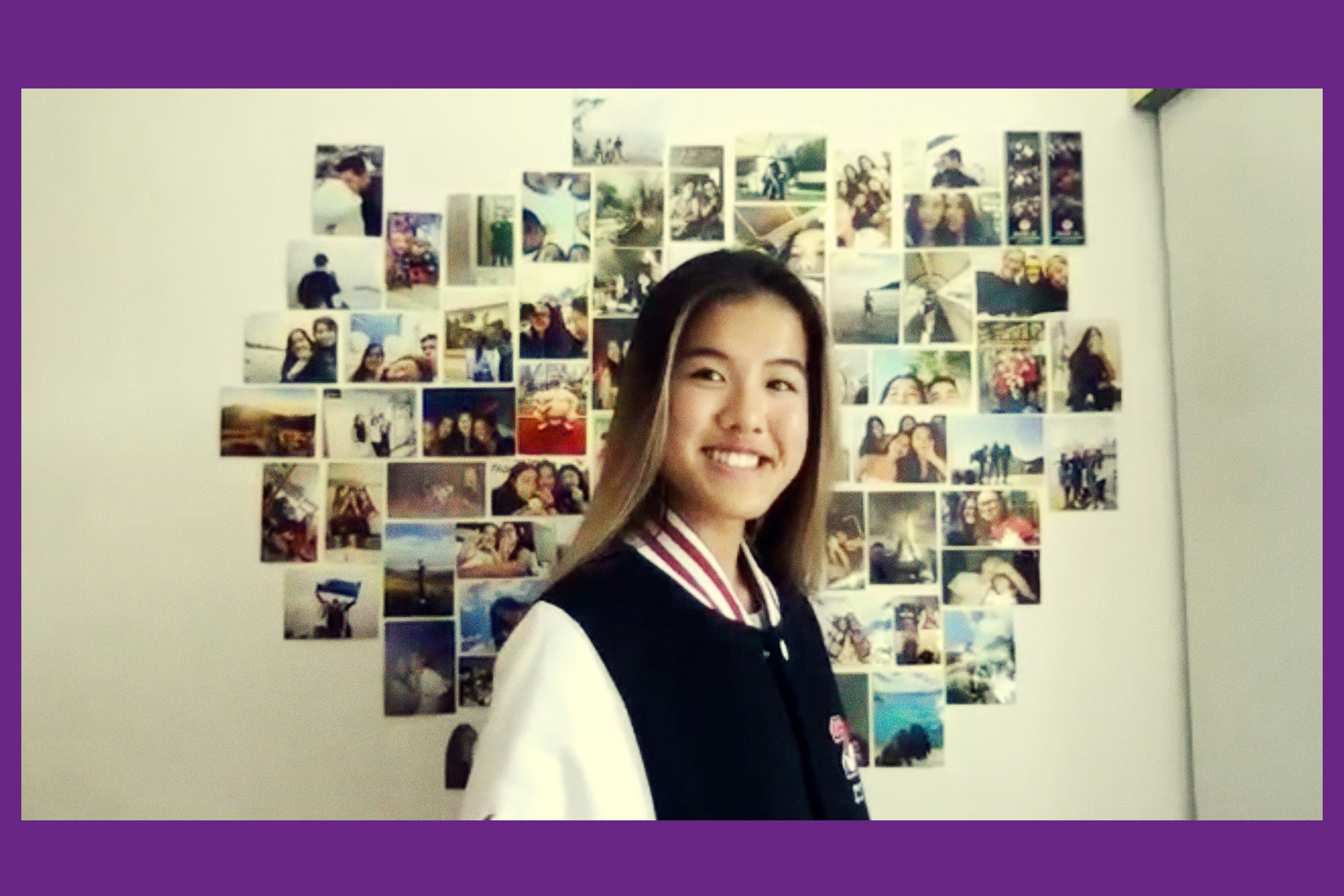
Megan lives in Hong Kong and hopes to go college in the fall, but is undecided.
In Hong Kong, lockdown started in late January or early February. So we started our online learning very early. Our school was able to adapt really well. I lost a lot of time with my friends, but getting to spend more time with my family is -really nice. My brother was in university in Canada, but he came home. I was scared our living habits would clash, but I think it actually brought us a lot closer because we were forced to spend time together. It kind of like made our friends closer too—we were able to find out who our true friends are.
On House Party (a group video–chatting service), seven or eight of us like to play Cards Against Humanity. It’s usually a game we play in person with real cards, but we tried it virtually, and it was actually really fun. And we love to make TikToks. They’re very bad. We have very low engagement, but it’s always fun to do them and laugh at each other.
It’s my last year playing basketball. Every single year I would represent the school at our Southeast Asia competition. This was supposed to be my last year. We were supposed to go to Singapore with the team. It got canceled, and I was very sad about it because it’s the last time I would get to play with my team and my friends.
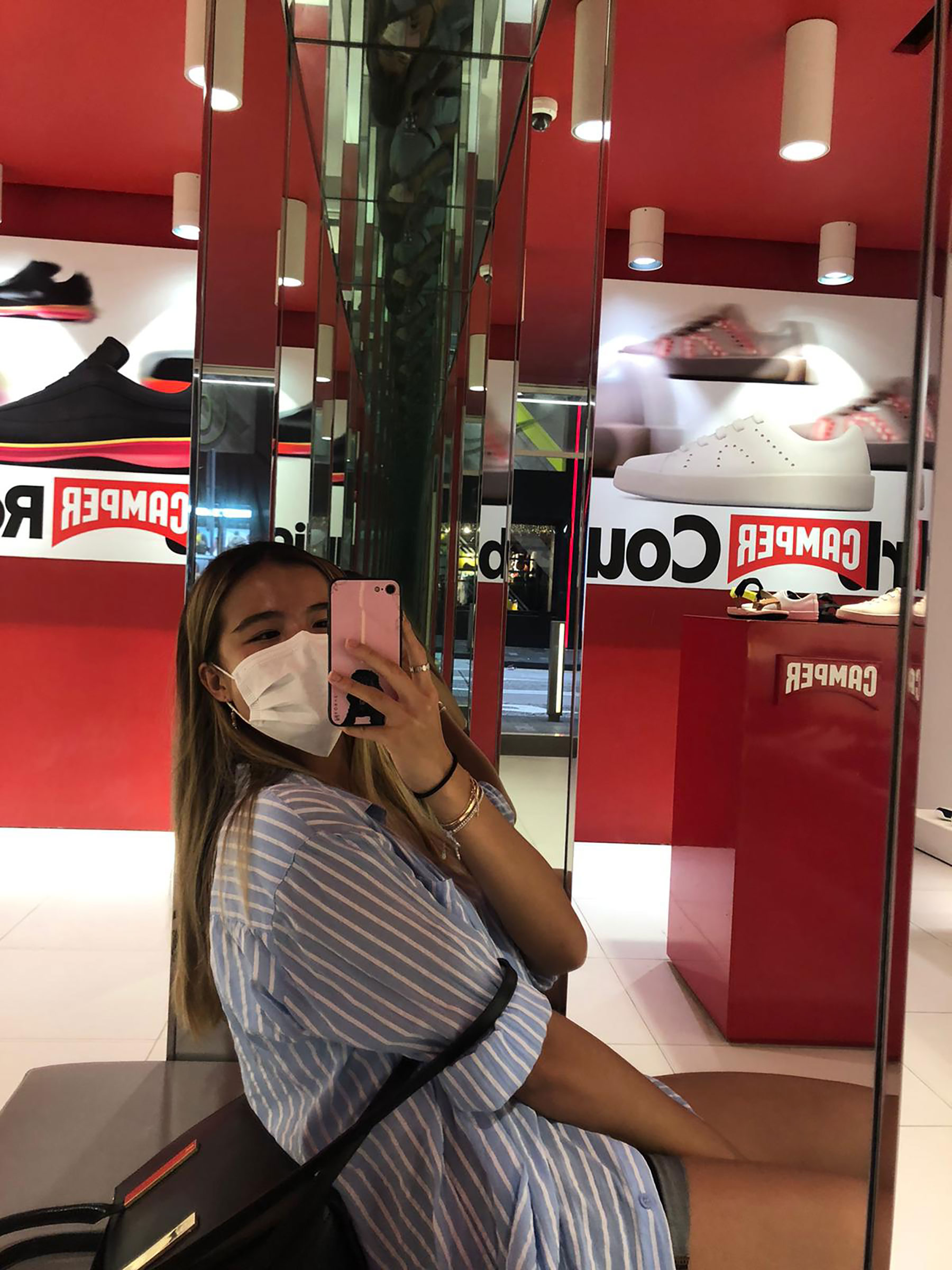
I know that the rest of the summer will be kind of like how things are right now. My family was hoping that maybe when the quarantine measures are relaxed, we can go somewhere close like Vietnam or Japan to celebrate the end of high school. My universities that I’ve applied to haven’t said that the fall term will be postponed until January or will be online classes, so I’m looking forward to being able to resume normal life again, kind of, but in a different environment, whether it be at the University of Hong Kong, the Chinese University of Hong Kong or St. Andrews in Scotland. I’m just hoping, but I don’t think U.K. schools will postpone their fall term.
A lot has changed. Because I don’t know whether or not I’ll get to go to school—medicine is something I feel like I really need to be taught in person—I’ve been considering maybe taking a gap year. A lot of my friends have taken this into consideration as well. I would spend half of the time traveling and doing volunteer work and the other half probably gaining work experience and, like, doing internships and stuff. Not only that, but because of corona, I’ve learned a lot about the medical field and the different departments that need help. It’s kind of changed my thoughts about medicine—I’m maybe considering going into the intensive-care unit. —As told to Amy Gunia
Romy Stevens, 17
Stevens lives in Cape Town, South Africa, and is applying to universities for next year.
In these past weeks in lockdown I have completely cycled through the five stages of grief. Denial: I’m living my life exactly as I always do except everything must be done from inside the house. Plus no wasting time in traffic. Anger: way too many projects. Online school is really awful. We are definitely still learning and getting all our work done, but there is something physically and emotionally draining about sitting in front of the screen for 6 hours a day. And then when school is over you still have to do homework. You can never escape school because the borders between school and home have become blurred. Bargaining: I missed this stage, but most of the country went through it as we tried to get rights to go outside (we can now exercise outside from 6-9 a.m. yay). Depression: last week I was miserable. Definitely a case of the lockdown blues. Acceptance: This week I am feeling much better. I probably just had to go through the stage of crying for three days to feel a bit better.
Generally the whole situation really sucks because we are missing out on all the fun parts of our matric [senior] year. This is the last year to spend time with our friends, many of whom will be travelling overseas or going to different universities next year and so we won’t see them anymore.
I do have it much better than the majority of our population. We have a very resourced school which is still able to teach us during lockdown and most of us are relatively safe and comfortable in our houses with Internet access—so many students have no access to education at the moment, and may not have enough food or a safe place at home.
The one good thing that has come from this is we are forced to make more of an effort to connect with people. You do not just have the school day in common with everyone anymore and you cannot just rely on seeing people at school so you have to make an effort to contact them. For my group of friends it has been really nice because we’ve had time to contact the exchange students and our friends who have emigrated again. I have never had so many video calls in my life. Being able to contact my friends on Instagram, Microsoft Teams and WhatsApp video call is absolutely amazing and it is keeping me sane but it would really be nice just to give them a hug.
This Instagram account is the most wonderful representation of how South African teens are feeling at the moment: ieb.memes_2020. Every year a different student runs an account that represents our final year. Usually it just consists of subject related memes with a lot of stressing and procrastination, but this year there is obviously a COVID twist. —As told to Mélissa Godin
Dhruv Krishna, 17
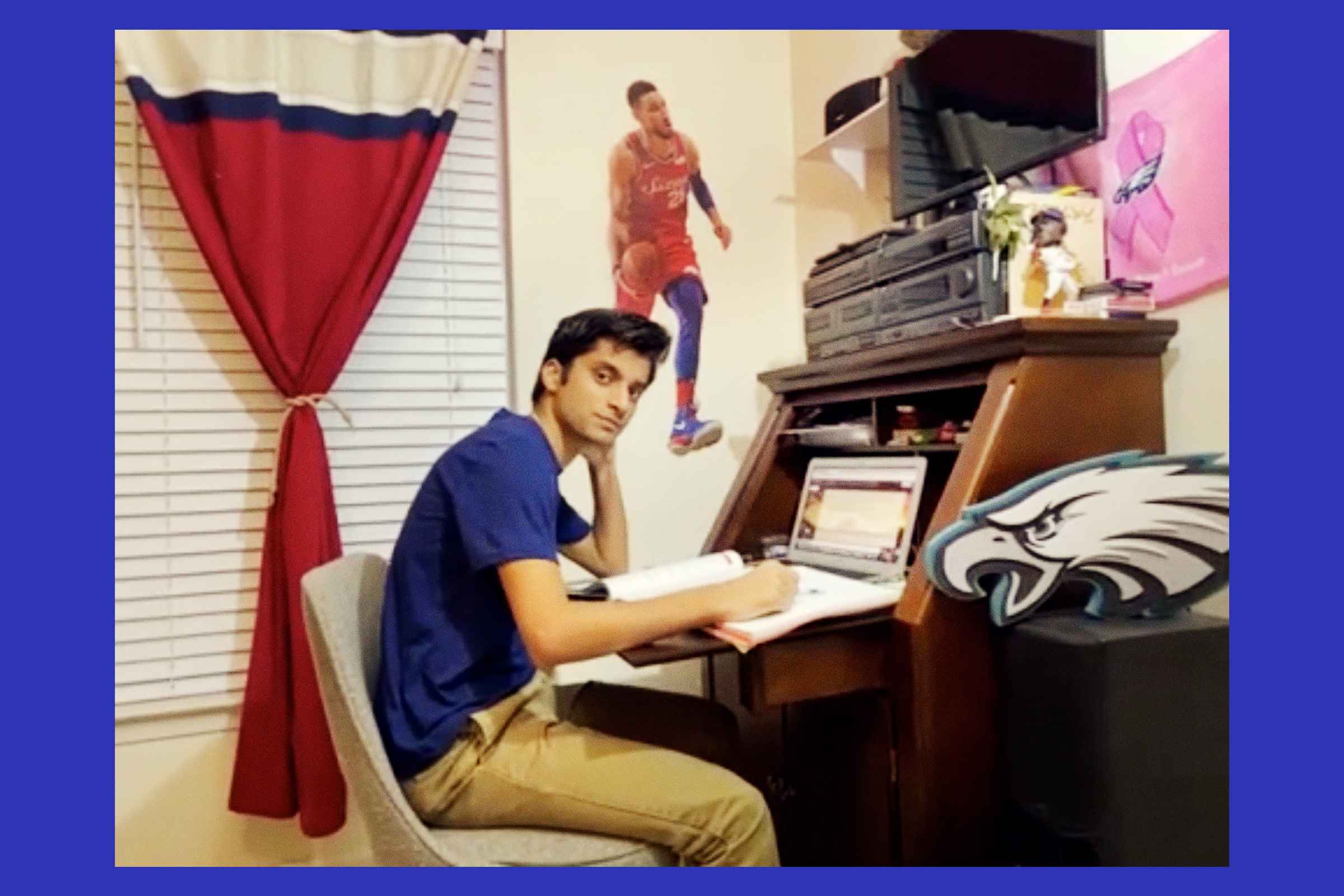
Dhruv lives in Allentown, Pa., and plans to attend the University of Virginia this fall.
We were on spring break when the corona hype hit the U.S. At first we were like, “Oh, this is cool, we get another couple days.” But those days turned into months, and then it hit us we would never see each other in person as a group again. We’ve been working for seven semesters, and this was supposed to be the best one.
We just finished AP-exam week. To celebrate, me and my friends are probably going to go to the parking lot. I’ve also been trying to manage the Team Arnav Foundation, which is definitely a struggle at this point. I founded it for my twin brother, who passed away from osteosarcoma in 2018. I didn’t want anyone else to have to go through that. We’ve raised about $60,000 to sponsor new [cancer] research so far. We had plans to do a charity run this spring. Of course, that can’t happen anymore. As a small business, it’s hard to keep going because the resources aren’t there. But we’re scheduling another run for when this is all over. This is a lifelong pursuit.
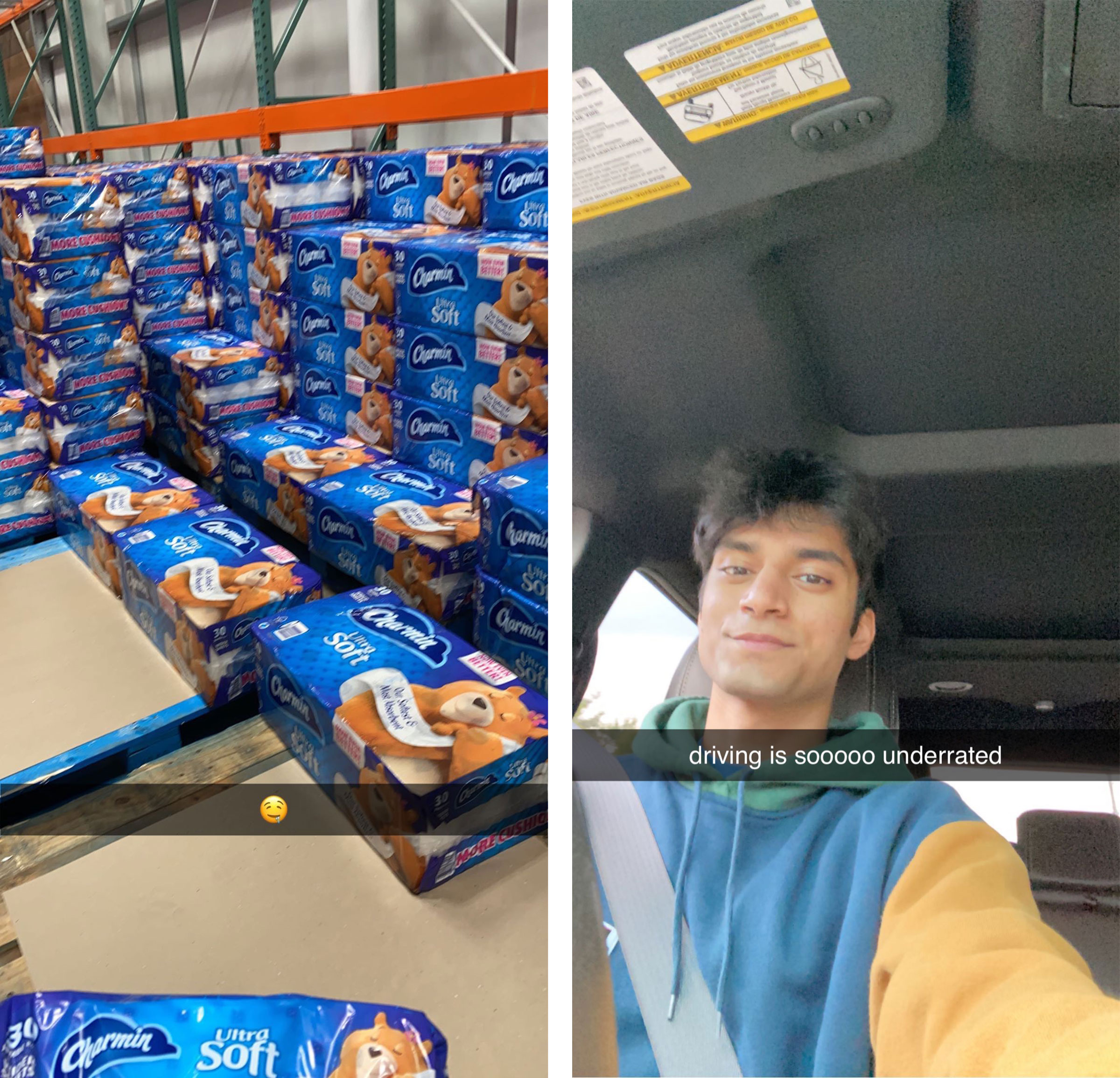
A silver lining has been reconnecting with so many old friends—elementary school friends, summer-camp friends—on Zoom calls. Everyone’s craving connection. Our school does Netflix parties. The most recent one was Ferris Bueller’s Day Off. We also FaceTime and stay up really late, like 4 or 5 a.m., just talking about stupid things. I wasn’t big on video games before, but now we’re doing ones we can all join in, like Call of Duty. My parents are very understanding because of the situation, but they’re also urging me to get outside and not spend all day looking at the screen. I’m working my way through reading the classics, which is a tedious challenge. Right now I’m on Jane Eyre. I just finished Pride and Prejudice and Great Expectations.
This fall, I’m supposed to go to the University of Virginia, and I’m keeping all my fingers and all my toes crossed we can go on campus. I’m excited to not only be away from these same four walls—my house, my bedroom—but also to meet new people and try new things. At home there are a lot of memories of my brother. This is the first time I’ve been alone for a summer at home, so it all feels foreign and different. I’m not entirely confident life will go back to normal, but I’m hopeful we can put all of this behind us. —As told to Raisa Bruner
Enrique Carrasco, 17
Enrique lives in El Paso, Tex., since emigrating from Mexico as a child. He plans to attend La Salle University in the fall.
At school, I would find happiness by bringing happiness to other people. Whenever I see someone who’s down, I feel like it’s my responsibility to bring them back up, to make them feel like they’re part of something bigger than themselves. And that’s without a doubt much harder to do from home. I’ve been making memes of inside jokes for my classmates. I’ve kept in touch with the kids from my class because we have a big group chat going, but my best friend and I aren’t really the type to text each other, so we’ve kind of drifted apart because of that. He lives in Mexico, so I haven’t seen him in a really long time.
I was also president of El Otro Lado, which is Spanish for “the other side.” In the program, we take schools from out of town, and we show them what life is like on the border. The moment that things started getting real bad [with the coronavirus], the schools that we had left canceled all their trips. I was really, really disappointed.
It’s really a feeling of worry that has clouded over me. This idea that I’ve built for myself since the beginning of the year—the classic going out of state to college, you know, small town to big town, meeting new people, the whole college experience—might not be possible. I signed D1 for water polo, and I’ve been practicing from home, so that come August if the school does reopen and my season is still on, I can still be competing at the level that I was competing at before. The pools are closed, but I have a pool at home. I spend about six or seven hours a week practicing, and, apart from that, and schoolwork, I’ve been spending a lot of time with my mom. We recently finished watching Narcos: Mexico and The House of Flowers.
I’m worried about what’s going to happen, but, mostly, I miss seeing my friends. Hanging out, doing our shenanigans, and just making memories—that’s the biggest part. —As told to Anna Purna Kambhampaty
Milly Parvin, 18
Milly lives in London and plans to attend University College London.
With all the uncertainty, I don’t know if I’m going to experience the first few months at a university campus like I’d planned, so I’m quite nervous and confused about my short term future. Longer term, I’m inspired by the work I’ve seen teachers doing. The education system isn’t going to be the same after this, and the pandemic has shown that teachers are key workers too. Now I want to be a headteacher and run a school one day; I want to be the person that pushes others to reach their goals.
Through this time, I’ve wanted to add spirituality into my routine a bit more, and to work on my relationship with God. Now that it’s Ramadan, we have a lot of traditions. Normally I would help volunteer at my local mosque when we pray at night. A really big thing for us is sharing food—for the first three days of Ramadan, our family shares food with our community. This time, my sister and I realized how much we missed being together and sharing our neighbor’s brownies. For Eid, we would get dressed up and go out for dinner, but of course that’s not going to be happening. It’s just quite sad that we can’t enjoy our traditional routines.
Sometimes you just need to scribble down your thoughts, and I do that with poetry. My mum will always say, “Why don’t you give your friends a call?” I find that hard because I want to see my friends, not just call them. When you scribble down the words—whether it rhymes or not—it allows you to express how you feel at that time. I like to post it online to relate to other young people.
In my poetry, I say that we will greet everyone with salaam, which means peace. Peace is what we really need after all of this, and I’m looking forward to just being able to say that we got through this, and being so proud that we did it. —As told to Suyin Haynes
—
More Must-Reads From TIME
- The 100 Most Influential People of 2024
- The Revolution of Yulia Navalnaya
- 6 Compliments That Land Every Time
- Stop Looking for Your Forever Home
- If You're Dating Right Now , You're Brave: Column
- The AI That Could Heal a Divided Internet
- Fallout Is a Brilliant Model for the Future of Video Game Adaptations
- Want Weekly Recs on What to Watch, Read, and More? Sign Up for Worth Your Time
Contact us at letters@time.com
